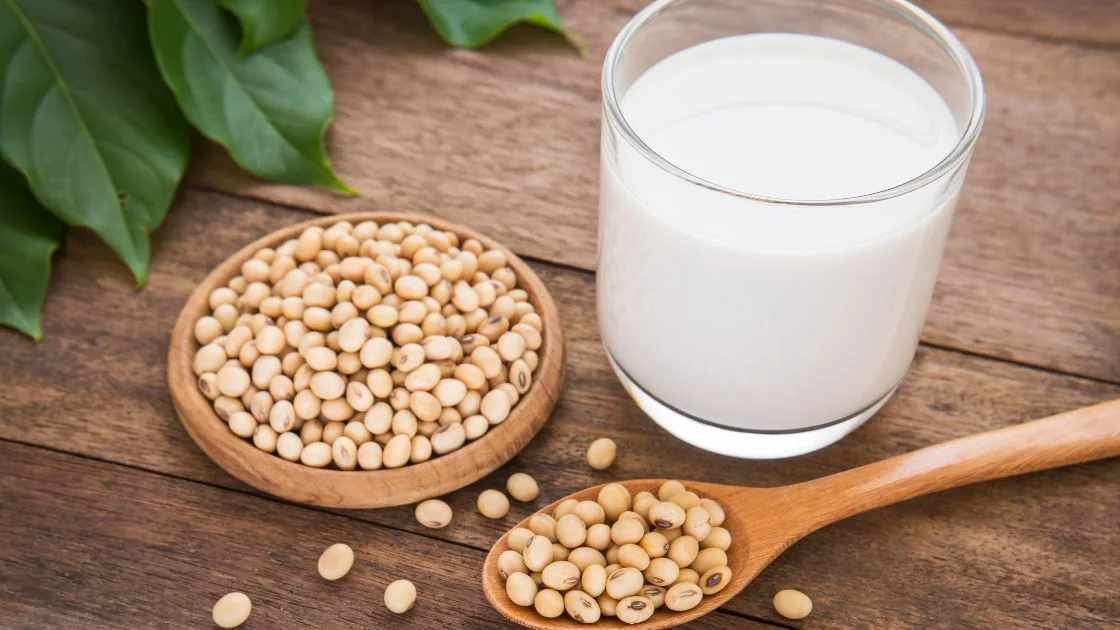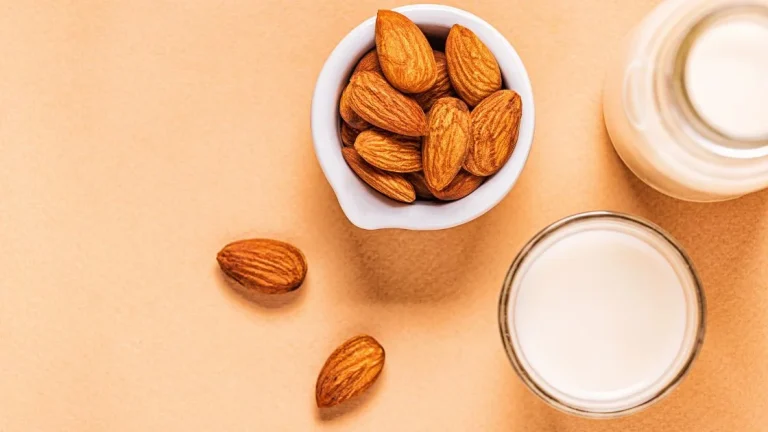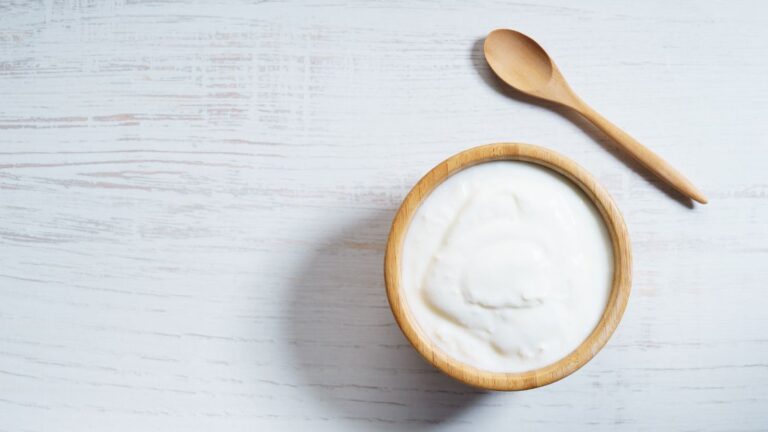- It is a healthy and delicious alternative to cow’s milk
- It is a popular choice for those following a plant-based diet
- It offers various health benefits, including reducing the risk of heart disease
- It is environmentally friendly, requiring less water, and producing fewer greenhouse gas emissions
- It can be easily incorporated into your diet
Are you looking for a healthy and delicious alternative to cow’s milk?
Whether you’re a vegan, lactose intolerant, or simply looking for a healthier plant-based alternative, soy milk is a great option to consider.
It’s creamy, nutty, and pairs well with everything.
In this blog, we’ll explore the many benefits of soy milk, from its history to its nutritional value and environmental impact.
A Brief History of Soy Milk
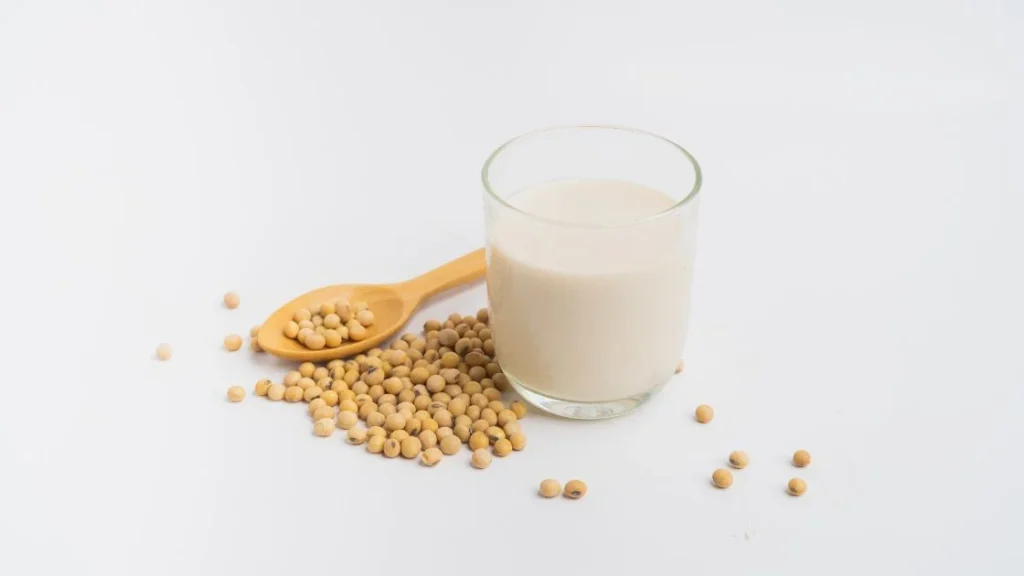
Soy products have been a staple in many parts of the world for centuries. It originated in China during the Han Dynasty (206 BC-220 AD).
The milk is made from, you guessed it, whole soybeans, which are soaked, ground, and boiled in water.
The resulting liquid is strained to produce the milky goodness,
Rising Popularity of Plant-Based Diets
Many people choose to reduce their animal product intake for various reasons, including ethical concerns and environmental and health impacts.
Soy milk is a popular choice for those who follow a plant-based diet, as it is an excellent source of protein and other important nutrients.
Health and Environmental Benefits of Soy Milk
Soy food is packed with protein, vitamin D, and calcium, which are essential for strong bones and teeth. It also contains soy isoflavones, which are phytoestrogens.
This estrogen has been shown to have various health benefits, including reducing the risk of breast cancer and improving heart health.
It is also more environmentally friendly than regular milk.
It requires less water and land and produces fewer greenhouse gas emissions.
Potential Benefits of Soy Milk
Protein and Amino Acids
There are approximately 8 grams of protein per serving.
Soy protein is also rich in essential amino acids, which are the building blocks of proteins our bodies cannot produce independently.
This is great news for vegetarians, vegans, or anyone looking to increase their protein intake.
Vitamins and Minerals
Fortified soy milk is chock full of vitamins and minerals, making it a great source of essential nutrients.
One cup is a great source of calcium – 30% of the recommended daily calcium intake.
It is also high in vitamin D, B12, and riboflavin, essential for a healthy immune system and energy production.
Low in Saturated Fat and Cholesterol
Compared to cow’s milk, soy milk is lower in saturated fat and cholesterol.
On average, one cup of soy milk contains only 2 grams of saturated fat and no cholesterol.
One cup of whole cow’s milk contains 5 grams of saturated fat and 24 milligrams of cholesterol.
Health Benefits of Soy Milk
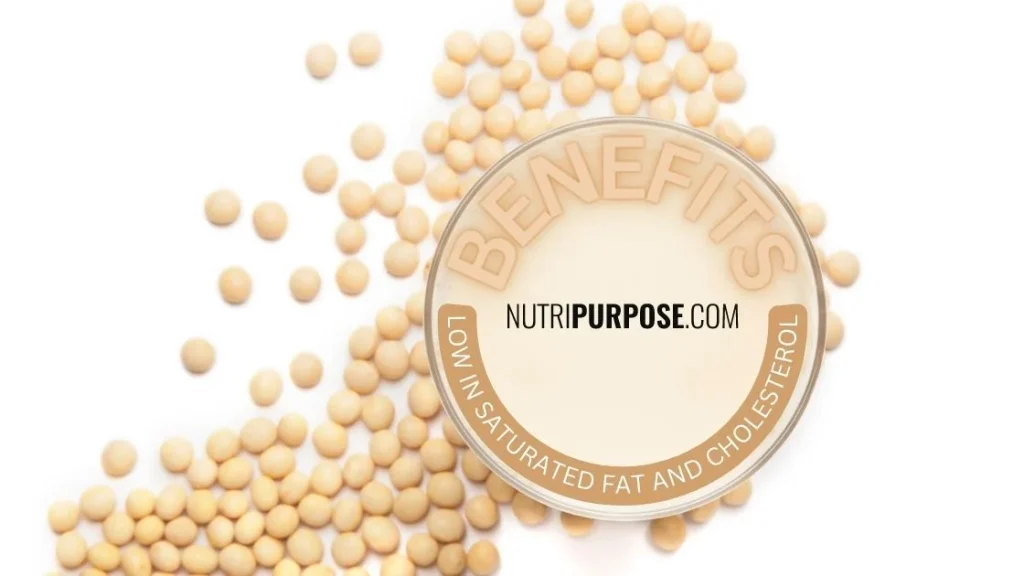
Lower Risk of Heart Disease
Studies have shown that soy milk can help reduce the risk of heart disease.
This is because soy milk contains compounds called isoflavones, which have been shown to reduce LDL (bad) cholesterol levels and improve blood vessel function.
Improved Bone Health Soy
As it is high in calcium, vitamin D, and phosphorus, soy is great for maintaining strong and healthy bones.
Studies have shown that soy milk can improve bone density in postmenopausal women.
Reduced Risk of Certain Cancers
Further studies have indicated that drinking soy milk can help reduce the risk of certain types of cancer, including breast, prostate, and colon cancer.
This is mainly thanks to the isoflavones that help inhibit cancer cell growth and spread.
Benefits for Menopausal Women
The active ingredients in soy have been shown to reduce the frequency and severity of hot flashes and other menopause symptoms.
Environmental Benefits of Soy Milk
Compared to traditional dairy farming, the production of soy milk results in significantly lower greenhouse gas emissions.
The production requires less land, water, and energy, and soy crops have a lower carbon footprint.
Many soy producers source their beans from certified sustainable farms that use environmentally friendly practices, such as crop rotation, minimal tillage, and natural pest management.
By supporting sustainable production, you can help promote environmentally responsible farming practices.
How to Incorporate Soy Milk into Your Diet
One of the simplest ways to enjoy soy milk is to drink it plain.
You can enjoy it chilled or heated up and add some sweeteners.
Soy milk has a naturally sweet and nutty taste, so it is a great milk alternative.
Soy milk is also great for cooking and baking.
It can be used in most recipes, including soups, sauces, and baked goods.
The creamy texture and the subtle nutty flavor complement most dishes.
When you substitute dairy milk with soy, remember that soy has a slightly different texture and taste.
It may curdle when mixed with acidic ingredients such as lemon juice or vinegar, so it may not be the best choice for making homemade cheese or yogurt.
However, soy milk can be used in most other recipes for regular milk, including pancakes, muffins, and smoothies.
Choosing the Best Soy Milk Per day
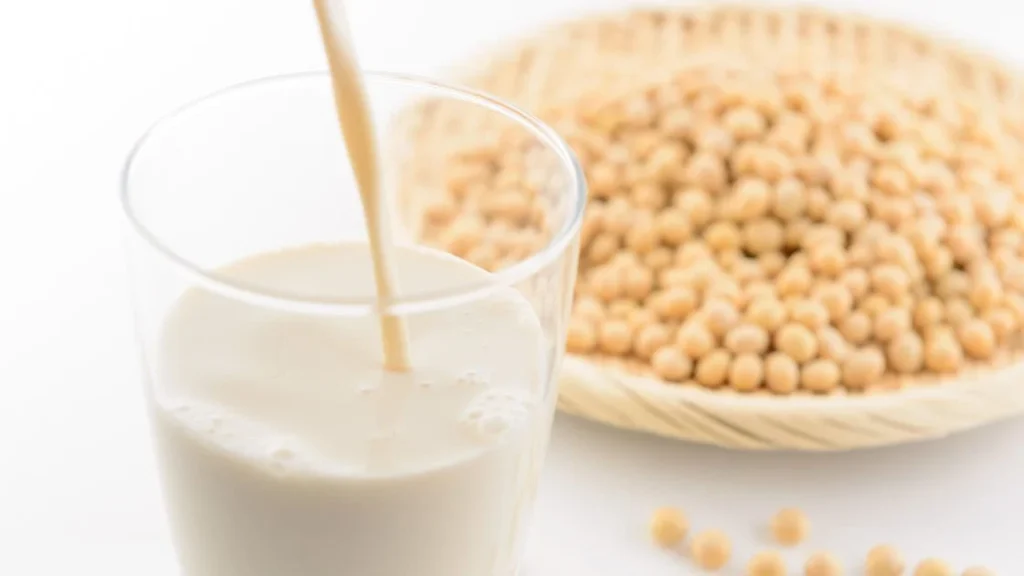
Organic and non-GMO options: When shopping for soy milk, looking for organic and non-GMO options is best.
The organic variety is made from soybeans that were grown without the use of harmful pesticides and fertilizers.
On the other hand, non-GMO soy milk is made from soybeans that have not been genetically modified.
Flavored and Unsweetened: Soy milk comes in a variety of flavors and sweetened and unsweetened options.
Flavored is often sweetened with natural sweeteners like cane sugar or maple syrup, while unsweetened soy milk has no added sugars.
Read the labels
Look for a brand made from whole soybeans, and avoid products containing additives or artificial ingredients.
Also, make sure to check the expiration date and store soy milk properly to ensure its freshness.
Conclusion
Soy milk is a delicious and nutritious plant-based milk alternative.
It not only offers numerous health benefits but is kinder to the environment as well.
It is high in protein, essential vitamins, and minerals and low in saturated fat.
Drinking soy milk may reduce the risk of heart disease, improve bone health, and reduce the risk of certain cancers.

I am a professional health and nutrition writer with extensive experience in the industry. My passion for sharing valuable insights on nutrition and wellness stems from over 15 years of personal training and maintaining a healthy lifestyle. My commitment to continuously educate myself on the latest trends and research in the field allows me to deliver high-quality content that is informative and engaging. My mission is to empower individuals to make informed decisions about their health and well-being through my writing.
